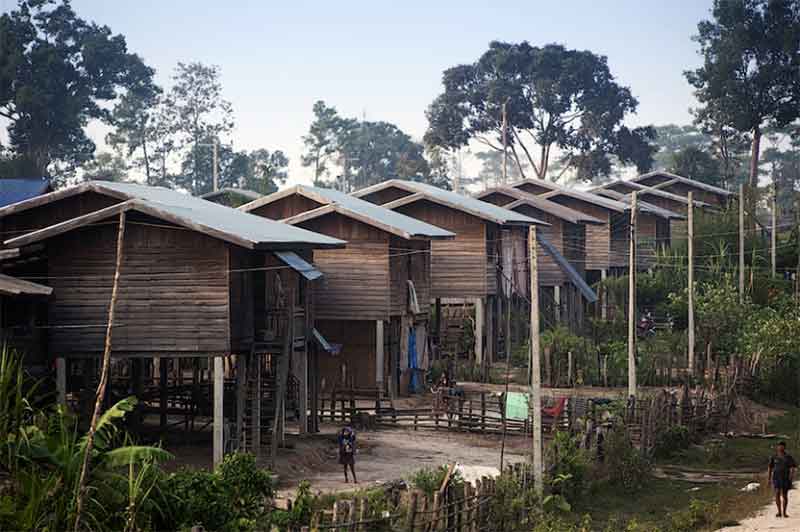
A few days ago, I participated in a webinar that introduced me to Paul Chappell, a thoughtful peace activist with an extraordinary history. Born in 1980, Chappell grew up in Alabama, the son of an immigrant Korean mother and a violent mixed-race father traumatized by military service in the Korean and Vietnam Wars.
His abusive home environment shaped in him a deep sense of alienation and rage. His behavior problems in school led to frequent disciplining. Chappell reports in a recent article, “A New Peace Paradigm,” that he developed in high school what he calls a mass shooter personality: “Every day I fantasized about shooting the kids in my classes….”
Chappell went on to graduate from West Point in 2002, deployed to Iraq in 2006, and left the army as a captain in 2009 to become a dedicated peace activist. Chappell was captivated by a foundational question: What do we humans most need?
Humanistic psychologist Abraham Maslow is famous for his hierarchy of human needs. At the base were the essential needs for food and water. Security came next. Belonging was the third level, with esteem fourth. Self-actualization, which we might define as purpose and meaning, resided at the top. Chappell turns that hierarchy on its head. He observes that our most fundamental need is for purpose and meaning. It is so fundamental that when we believe important values are at stake, as in times of war or other emergency situations, it can override our need for food and safety.
I was reflecting on Chappell’s insight while awaiting the presidential election results on Nov. 3. Terrified of the devastation four more years of a Trump presidency would surely bring, I began to ponder: What might be the relevance of Chappell’s insight from his military service and troubled childhood for dealing with our deeply troubled and divided nation?
I began to listen more closely to Republican voices expressing their fear of Trump losing. Their fear was at least as intense as my fear of Trump winning. It seems that political battles most commonly center on cultivating fear and distrust of political opponents.
I wondered: Might we find our way beyond the hatred born of mutual fear to search for common purpose and meaning as President-elect Biden seems intent on doing?
As we move past the turmoil of the election, some among us are surely asking how they might contribute to our coming together. Are there conversations we might engage in to help us better understand one another?
It might begin with conversations that pose two fundamental questions to groups that span the political divide: As we think about our society, what do we most fear? And what are our most fervent hopes for the future?
Once we clearly identify and share our deepest fears and hopes, we may discover we have far more common ground regarding purpose and meaning than we ever imagined.
What greater purpose and meaning is there than working together to create a world that secures the health of Earth and the well-being of families and communities? That world would likely feature businesses rooted in local communities that employ local people to meet local needs for a fair return to local owners. It would likely feature deeply democratic governing institutions that facilitate local problem-solving and secure inclusive local communities against predatory intrusion, while facilitating cooperation and mutual sharing among communities.
I grew up as a small-town, White middle-class, Eisenhower Republican who understood the United States to be the envy of the world as a middle-class democracy with strong self-governing communities free of the extremes of wealth and poverty that I understood to characterize so much of the world. It was only after I experienced a deep immersion in poverty in Asia that I was able to see the poverty at home, even that of some of my close White friends with whom I had grown up in my all-White town.
As the Republican Party turned away from what I had understood to be its vision, I turned away from the Republican Party and to the Democratic Party. Ultimately, I came to recognize the limited choice our system gives us between two political parties, both dependent on the money of wealthy donors whose interests both parties ultimately serve.
As I have previously observed, we as a nation have always been far from the ideal I cherished in my youth. We are even further from it now. But my once-cherished values as a Republican were not that different than my current cherished values as a Democrat.
Republicans are most vocal in their distrust of big government. Democrats are most vocal in their distrust of big business. I agree with both. Big government and big business are both obstacles to the sharing of wealth and power within the middle-class communities that are essential to the well-being of the 7.8 billion living people of the living Earth.
It seems hardly a stretch to imagine that through open, honest conversations in which we share our deepest hopes and fears, we the people of the self-proclaimed United States might find shared meaning and purpose in a unifying vision of a future that aligns with our foundational values, despite our current politics.
That vision would likely feature strong families and communities. The families need not necessarily be limited to traditional forms. And rather than being exclusive and competitive, communities might be cooperatively linked in their dedication to the beauty and well-being of Earth and all its people.
The shared vision would likely give high priority to assuring every person access to secure dignified and adequately compensated employment—including opportunities for self-employment. Conventional welfare programs would be a last resort.
The primary function of national government might be limited to securing and supporting state and local communities in self-governing, self-care efforts that link urban centers and their surrounding rural neighbors. Purely private interest transnational corporations would be broken up and their useful elements restructured as worker or consumer cooperatives.
There would no doubt be initial resistance to elements of such a vision. Yet with goodwill and a bit of flexibility we might find a viable vision with near-universal appeal beyond the fear and anger of conventional electoral politics. At the least, it would be a meaningful quest in pursuit of a profound purpose.
















































